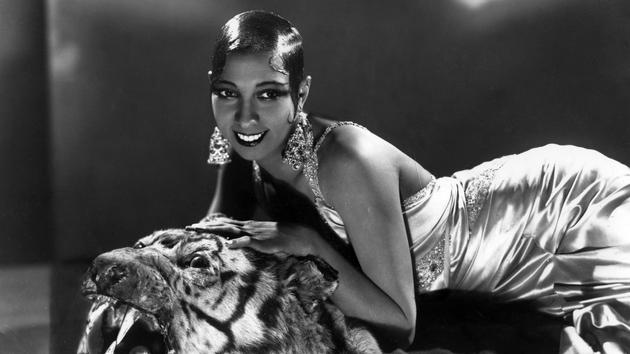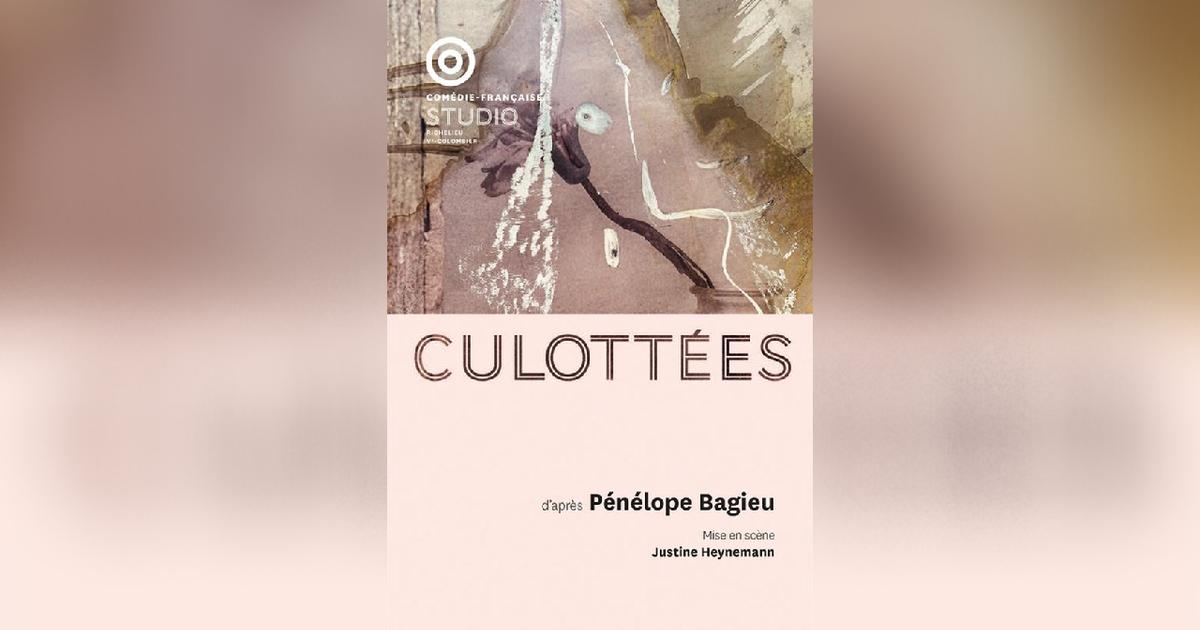In partnership with
RetroNews
, the BnF press site,
She is the “
star
” of the review.
Everyone in this month of October 1925 agrees.
Since October 2, the new show of the
Revue nègre
given at the Théâtre des Champs-Élysées has been throwing French spectators away.
The star is a 19-year-old African-American woman who has just arrived from her native country.
Joséphine Baker performs her “wild dance” there, topless, a feather belt at the waist that she will soon replace with bananas.
The France of the Roaring Twenties was fond of the exotic and of that "Negro aesthetic" that we look at with fascination.
Paris was then a meeting place for black artists and intellectuals from the West Indies, Africa or the United States.
To read also
Joséphine Baker, a certain idea of France
In a frenzied dance, rolling her eyes and her whole body, the young woman fully integrates the imagination of the "African savage", seizing racial clichés to better transcend them. By fabricating "
its own imagination above the colonial, it takes power over the gaze of white people,
" the historian Pascal Blanchard recently explained to AFP while stressing that by looking at it today, "
we we would all be shocked
”.
The critics are thrilled.
From the conservative daily
Le Journal
to the communist
L'Humanité
, enthusiasm is shared.
At
Le Figaro
, the journalist Jacques Patin was won over, first by the sets and the music, then finally by "
Miss Joséphine Baker, the astonishing star of the troupe
":
"
Beautifully tapered legs, a young body with reflections of bronze and copper, ebony hair whose curls plating at the temples meet the long line of the eyebrows;
a small head where large pupils blaze and shine like carbuncles, a gaze which fascinates and of which a deliberate squint increases at times the singular brilliance;
Miss Baker, who makes one think of some black idol, is a living vine.
A strange demon of dance and fantasy inhabits and animates it;
she bends, waves, leaps, bends and straightens up, shaken by a kind of rhythmic convulsion, twisted by the most comical contortions;
and while her raised arms seem to make the gesture of some mysterious incantation, her legs, like two disjointed diamonds, beat their knees, evoking a dance of a gnome or of the possessed.
"
But a few weeks later, a discordant voice is heard on the front page of the newspaper. On November 16, the academician and literary director of
Le Figaro
, Robert de Flers, denounces "
the most direct offense that French taste has ever received
", and shouts "
a lamentable transatlantic exhibitionism which seems to take us back to the monkey in much less time than it took us to get off
”. The fault, according to the journalist and playwright, does not
lie
with his star, Joséphine Baker, who, however, "
forced her legs into the most frightful hideaways, her eyes to the most hideous squint, her body to a dislocation that did not exist. 'results in no tour de force
". No, those responsible are those snobs who revel in such a spectacle, "
devoid of any civilization, even elementary, making a clean sweep of everything that has been understood, thought and felt to date
."
But the violent attack of the Marquis de Flers did not mar Joséphine Baker's success in Paris. She pursued her career in the music hall and completely won the hearts of the French. She regularly occupies the pages of newspapers for her participation in charity galas or the passage of her driving license in 1927 on the avenue de la Grande-Armée.
Le Figaro
welcomes her development, a little relieved that she is moderating her grimaces. In 1930, when she performed at the Casino de Paris in
Paris qui stout
, the new dramatic critic of
Le Figaro
, Gérard d'Houville - pseudonym of the poet Marie de Heredia -, all imbued with the racial prejudices of the time, wanted congratulate Miss Joséphine Baker: “
She is now an artist, a true one, whose wild gifts and barbaric vitality have become the most original and the most intense dramatic force
. "
Nine years after her debut, the artist begins a tour of the provinces.
On his return,
Le Figaro
takes stock:
“
Let us remember 1925 when this strange person arrived not knowing a word of French, where all she possessed to conquer us was her ingenuity, her virginal nudity, her head voice and our insatiable taste for exoticism.
There was some resistance: not all of Paris bit their teeth into these frantic bananas.
But little by little what was acidity became charm, curiosity, sympathy ... The years go by.
We cleared: Miss Josephine Baker too.
Enough to conquer our province after the two worlds and return to Paris, dressed up to the neck, eyes full of modesty and having added a third love to her song: Lyon, Vendôme, Clermont, Tours, Brest, or Le Dorât?
"









